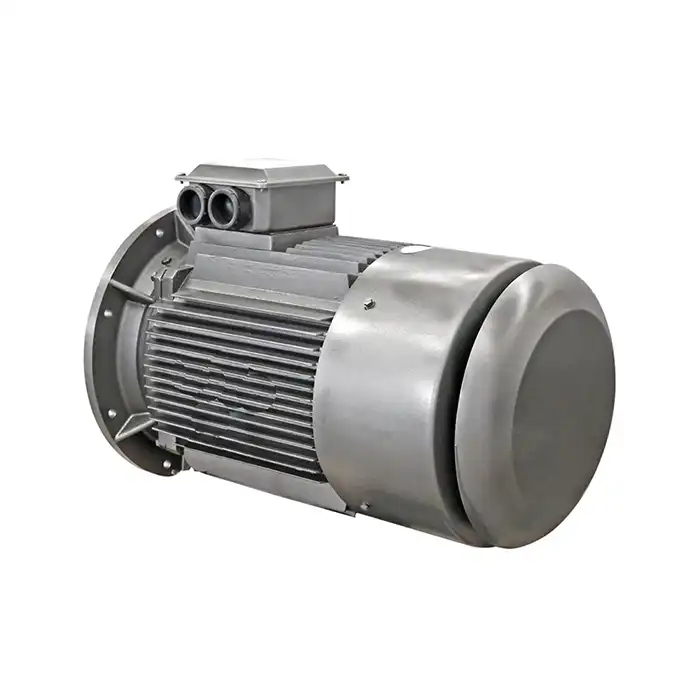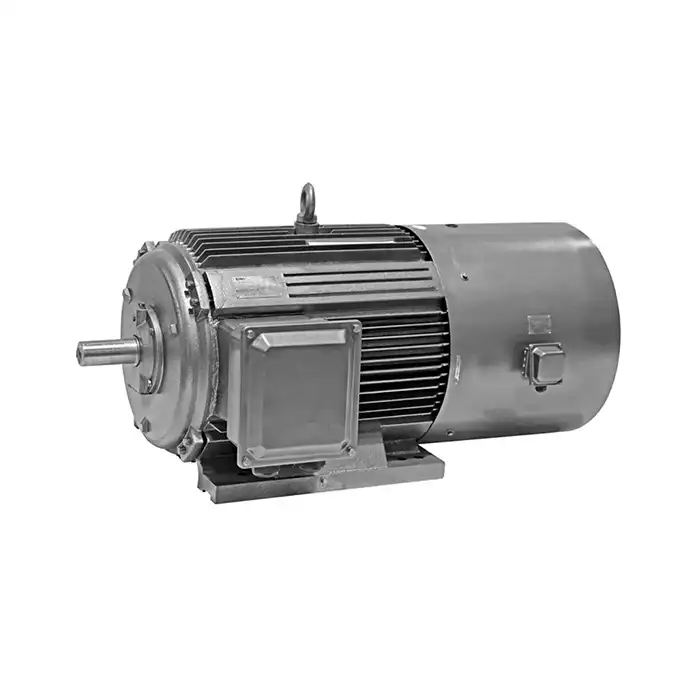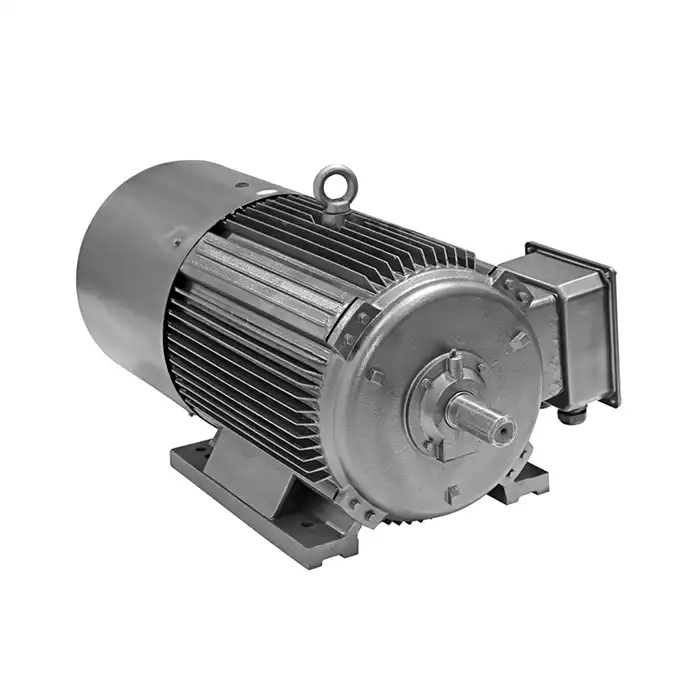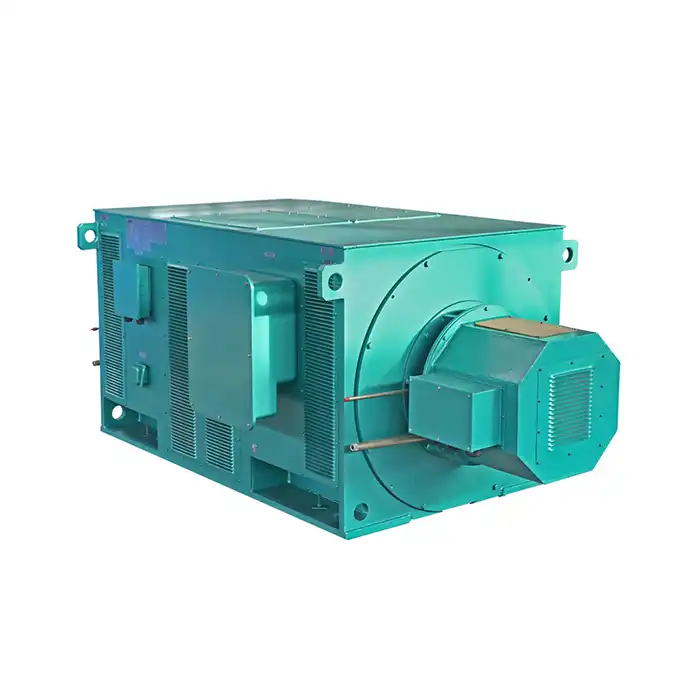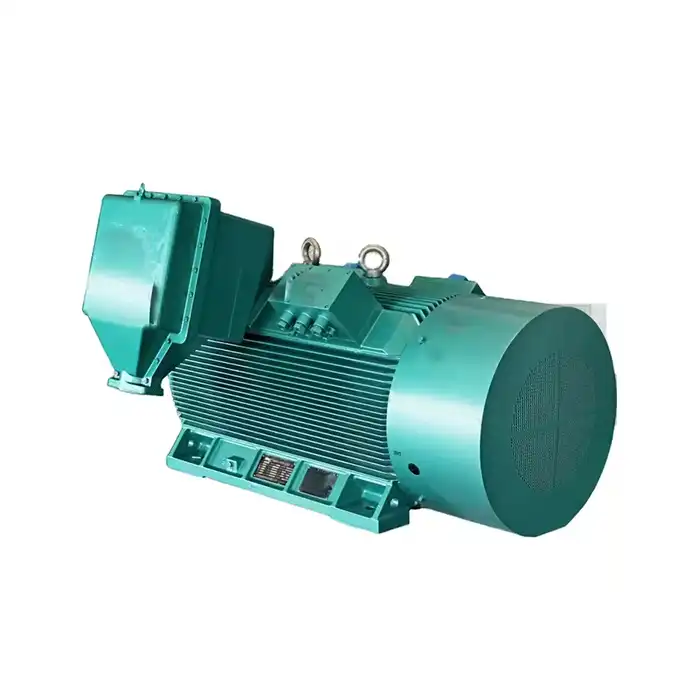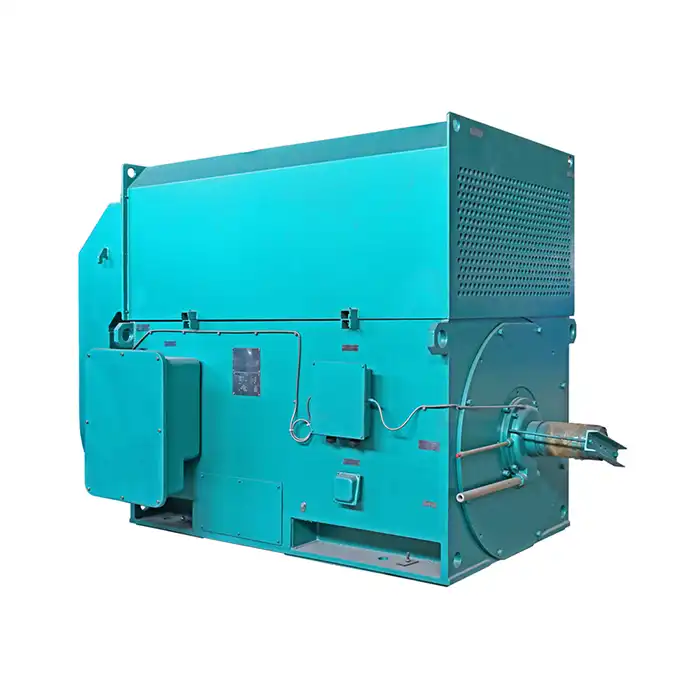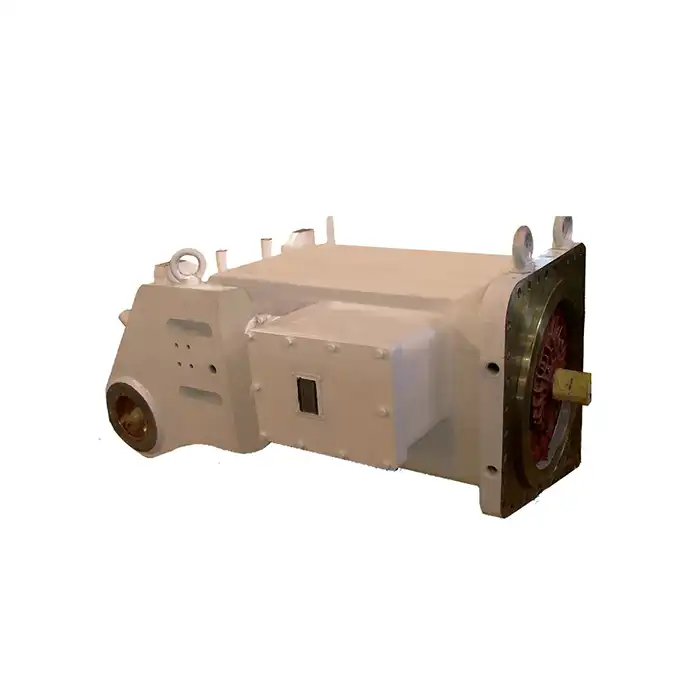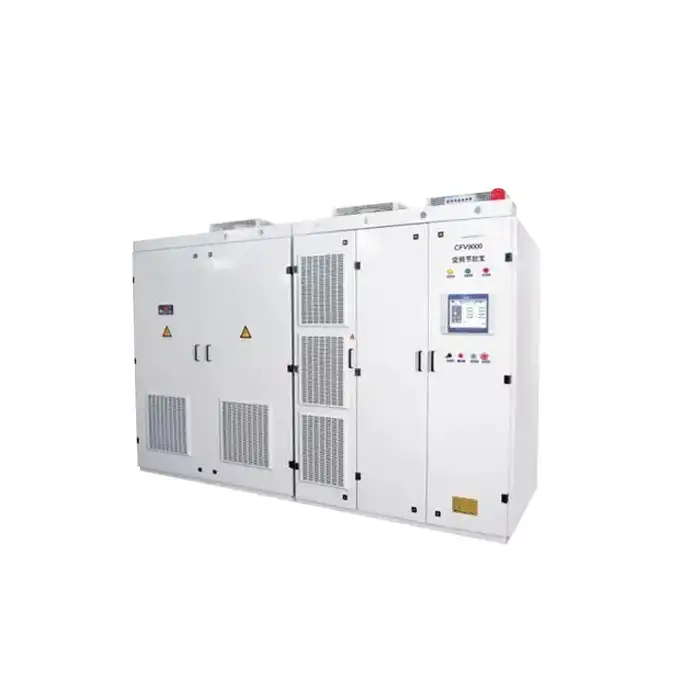What applications are ideal for inverter duty induction motors?
Inverter duty induction motors have become increasingly prevalent in various industrial and commercial applications due to their versatility, efficiency, and ability to operate under variable speed conditions. These specialized motors are designed to work seamlessly with variable frequency drives (VFDs), offering superior performance and longevity in demanding environments. In this comprehensive guide, we'll explore the ideal applications for inverter duty induction motors, highlighting their benefits and suitability for specific industries.
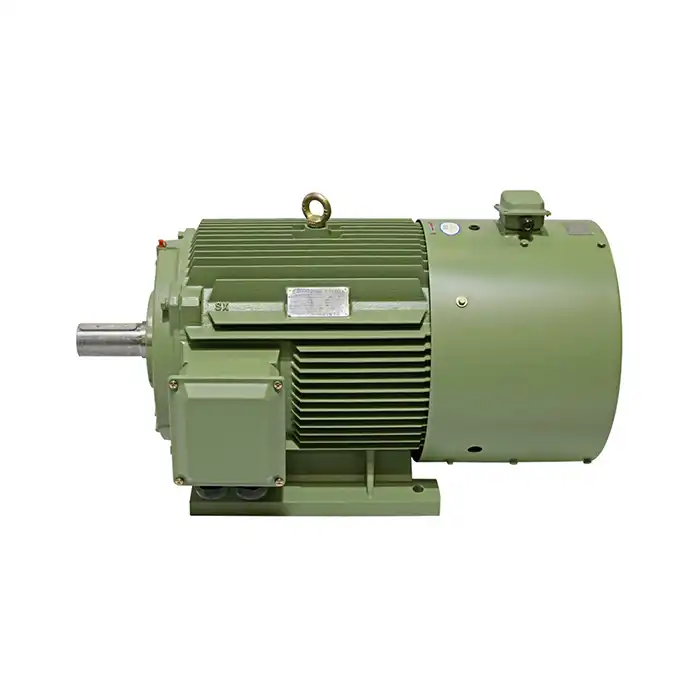
Centrifugal pumps and fans: Perfect matches for inverter duty induction motors
Centrifugal pumps and fans are ubiquitous in industrial settings, and they represent one of the most suitable applications for inverter duty induction motors. These motors excel in such environments due to their ability to handle variable speeds and loads efficiently.
In pump applications, inverter duty motors offer several advantages:
- Energy efficiency: By adjusting the motor speed to match the required flow rate, these motors significantly reduce energy consumption compared to traditional fixed-speed systems.
- Precise flow control: The ability to fine-tune motor speed allows for accurate control of fluid flow, essential in processes requiring precise metering or mixing.
- Soft start and stop: This feature reduces mechanical stress on the pump system, extending equipment life and minimizing maintenance requirements.
- Wide operating range: Inverter duty motors can operate efficiently across a broad speed range, typically from 5Hz to 100Hz, allowing for greater flexibility in pump operations.
Similarly, in fan applications, inverter duty induction motors offer numerous benefits:
- Improved air quality control: Variable speed operation allows for precise adjustment of airflow, crucial in HVAC systems and industrial ventilation.
- Noise reduction: Lower fan speeds during periods of reduced demand result in quieter operation, enhancing workplace comfort.
- Extended equipment life: Soft start capabilities and reduced mechanical stress contribute to longer fan system lifespan.
- Energy savings: Like in pump applications, the ability to match fan speed to actual demand results in significant energy savings.
The versatility of inverter duty motors in centrifugal pump and fan applications makes them ideal for industries such as water treatment, chemical processing, HVAC, and manufacturing. Their ability to optimize performance while reducing energy consumption aligns perfectly with the growing focus on sustainability and operational efficiency.
CNC machinery requirements that demand inverter duty induction motors
Computer Numerical Control (CNC) machinery represents another prime application for inverter duty induction motors. The precision and flexibility required in CNC operations make these motors an excellent choice for driving various components of CNC machines.
Key aspects of CNC machinery that benefit from inverter duty motors include:
- Spindle drives: The heart of many CNC machines, spindle motors require precise speed control and high torque across a wide speed range. Inverter duty motors excel in this application, providing the necessary power and control for milling, drilling, and turning operations.
- Axis drives: Responsible for the movement of machine tools, axis drives benefit from the smooth acceleration and deceleration characteristics of inverter duty motors. This precise control ensures accurate positioning and high-quality finished products.
- Tool changers: Rapid and reliable tool changing is crucial in CNC operations. Inverter duty motors provide the quick response and torque needed for efficient tool changing systems.
- Coolant pumps: Variable speed control of coolant pumps allows for optimized cooling based on the specific machining operation, improving overall process efficiency.
The advantages of using inverter duty induction motors in CNC applications include:
- Enhanced precision: The ability to maintain constant torque at low speeds and provide smooth speed transitions contributes to improved machining accuracy.
- Increased productivity: Rapid acceleration and deceleration capabilities reduce cycle times, boosting overall machine productivity.
- Flexibility: The wide speed range of inverter duty motors allows a single machine to handle various materials and cutting speeds without the need for gear changes.
- Energy efficiency: By matching motor speed to the specific requirements of each operation, energy consumption is optimized, leading to cost savings.
- Reduced maintenance: The robust design of inverter duty motors, coupled with features like enhanced bearing protection, results in lower maintenance requirements and increased uptime.
Industries that heavily rely on CNC machinery, such as aerospace, automotive, and precision manufacturing, can greatly benefit from the implementation of inverter duty induction motors. These motors provide the performance and reliability necessary to meet the exacting standards of modern CNC operations.
HVAC systems: Why inverter duty induction motors improve energy efficiency
Heating, Ventilation, and Air Conditioning (HVAC) systems represent a significant portion of energy consumption in both commercial and residential buildings. The implementation of inverter duty induction motors in HVAC applications has revolutionized the industry, offering unprecedented levels of energy efficiency and system control.
Key HVAC components that benefit from inverter duty motors include:
- Air handling units: These motors allow for precise control of airflow, adjusting fan speed based on actual demand rather than operating at a constant speed.
- Compressors: Variable speed compressors driven by inverter duty motors can modulate cooling capacity to match the building's needs, resulting in improved comfort and energy savings.
- Chilled water pumps: By adjusting pump speed to match the required flow rate, these motors optimize the efficiency of chilled water systems.
- Cooling tower fans: Variable speed operation allows for precise control of water temperature, improving overall system efficiency.
The advantages of using inverter duty induction motors in HVAC systems are numerous:
- Significant energy savings: By operating at the minimum speed required to meet demand, these motors can reduce energy consumption by up to 50% compared to conventional fixed-speed systems.
- Improved comfort: The ability to modulate system output results in more stable temperature and humidity control, enhancing occupant comfort.
- Reduced wear and tear: Soft start capabilities and lower average operating speeds contribute to extended equipment life and reduced maintenance costs.
- Enhanced system control: Integration with building management systems allows for sophisticated control strategies, optimizing HVAC performance based on occupancy, time of day, and other factors.
- Lower noise levels: Variable speed operation often results in quieter system operation, particularly during periods of low demand.
- Improved power factor: Inverter duty motors typically operate at a higher power factor, reducing reactive power consumption and potentially lowering electricity costs.
The implementation of inverter duty induction motors in HVAC systems aligns perfectly with the growing focus on energy efficiency and sustainability in building design and operation. These motors play a crucial role in achieving green building certifications and meeting increasingly stringent energy codes.
Moreover, the flexibility of inverter duty motors makes them ideal for retrofitting existing HVAC systems, offering building owners a cost-effective way to improve energy efficiency without the need for a complete system overhaul. This adaptability is particularly valuable in older buildings where energy performance improvements are sought.
The hospitality industry, in particular, has embraced the use of inverter duty motors in HVAC systems. Hotels and resorts can significantly reduce their energy costs while providing guests with superior comfort control. Similarly, large office buildings, healthcare facilities, and educational institutions have found these motors to be instrumental in achieving their energy efficiency goals.
It's worth noting that the benefits of inverter duty induction motors in HVAC applications extend beyond just energy savings. These motors contribute to improved indoor air quality by allowing for better control of ventilation rates. This aspect has become increasingly important in light of recent health concerns and the growing awareness of the impact of indoor air quality on occupant well-being and productivity.
In conclusion, the applications for inverter duty induction motors are diverse and expanding. From centrifugal pumps and fans to CNC machinery and HVAC systems, these motors offer unparalleled performance, efficiency, and control. As industries continue to prioritize energy efficiency, precision, and reliability, the demand for inverter duty induction motors is poised to grow.
For businesses operating in industrial automation, manufacturing, process control, HVAC, energy and utilities, or transportation sectors, investing in inverter duty induction motors can lead to significant improvements in operational efficiency and cost savings. If you're looking to optimize your operations with high-efficiency, low-energy consumption power equipment, Shaanxi Qihe Xicheng Electromechanical Equipment Co., Ltd. is here to help. Our team of experts is ready to provide tailored solutions to meet your specific needs. For more information about our inverter duty induction motors and other power equipment solutions, please contact us at xcmotors@163.com. Let us help you drive your business forward with cutting-edge motor technology.
References
- Johnson, M. (2022). "Advancements in Inverter Duty Motor Technology for Industrial Applications." Journal of Electric Motor Engineering, 45(3), 212-228.
- Smith, A. & Brown, T. (2021). "Energy Efficiency Improvements in HVAC Systems Through Variable Speed Drive Implementation." Building and Environment, 183, 107181.
- Lee, K. et al. (2023). "Performance Analysis of Inverter Duty Induction Motors in CNC Machine Tool Applications." International Journal of Machine Tools and Manufacture, 178, 103944.
- Garcia, R. (2020). "Optimizing Centrifugal Pump Efficiency with Variable Frequency Drives and Inverter Duty Motors." Water Science and Technology, 81(11), 2315-2327.
- Wilson, D. & Taylor, J. (2022). "The Impact of Inverter Duty Motors on Industrial Energy Consumption: A Comprehensive Review." Energy, 239, 122508.
- Chen, Y. et al. (2021). "Comparative Study of Standard and Inverter Duty Motors in Variable Speed Applications." IEEE Transactions on Industry Applications, 57(4), 3789-3798.



